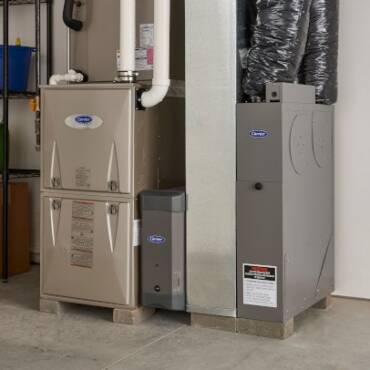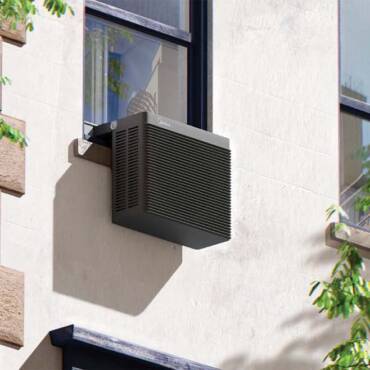– Maria Taylor
The U.S. Division of Labor (DOL) on Jan. 9 introduced a last rule on the way it classifies staff as workers or unbiased contractors beneath the Honest Labor Requirements Act (FLSA). It’s the most recent within the DOL’s effort to crack down on firms that misclassify their workers to keep away from offering sure protections and advantages, like employee’s comp and time beyond regulation pay. Whereas the time period “unbiased contractor” might recall to mind “gig” work like Uber and Lyft, the rule might additionally affect different industries, together with building. Some business associations argue the rule might find yourself hurting respectable companies within the trades, together with HVAC, the place there are already too few staff to go round.
DOL’s Stance
The ultimate rule rescinds the 2021 Impartial Contractor Rule, which the DOL believes is just not in keeping with the regulation and longstanding judicial precedent. As a substitute, it aligns with an evaluation utilized by courts for many years, addressing six components that information the evaluation of a employee’s relationship with an employer.
“The Division believes that this last rule will cut back the chance that workers are misclassified as unbiased contractors, whereas on the identical time offering higher consistency for companies that interact (or want to interact) with people who’re in enterprise for themselves,” DOL acknowledged within the FAQ part of the rulemaking announcement.
In response to a DOL press launch, the brand new rule will protect important employee rights and supply consistency for entities lined beneath the Honest Labor Requirements Act; it “seeks to fight worker misclassification, a major problem that impacts staff’ rights to minimal wage and time beyond regulation pay, facilitates wage theft, permits some employers to undercut their law-abiding competitors and hurts the financial system at-large,” in keeping with the assertion.
“Misclassifying workers as unbiased contractors is a critical situation that deprives staff of fundamental rights and protections,” acknowledged Appearing Secretary of Labor Julie Su. “This rule will assist defend staff, particularly these dealing with the best danger of exploitation, by ensuring they’re labeled correctly and that they obtain the wages they’ve earned.”
“Confusion,” “Chaos”
The Related Builders and Contractors (ABC) supported the 2021 Impartial Contractor Rule, which they imagine simplified and clarified components for figuring out when a employee is an unbiased contractor versus an worker beneath the FLSA.
“Regrettably, the confusion and uncertainty ensuing from the ultimate rule will trigger staff who’ve lengthy been correctly labeled as unbiased contractors within the building business to lose alternatives for work,” stated Ben Brubeck, ABC’s vp of regulatory, labor, and state affairs, who criticized the ultimate rule that was handed over his group’s opposition. “Official unbiased contractors are a significant a part of the development business, offering specialised expertise, entrepreneurial alternatives, and stability throughout fluctuations of labor widespread to the business. They play an vital function for giant and small contractors, delivering building tasks safely, on time, and on funds for his or her authorities and personal prospects. This transfer will jeopardize the power of building corporations to proceed the business’s longstanding follow of using respectable unbiased contractors.”
In March 2021, ABC, its Southeast Texas chapter, and the Coalition for Workforce Innovation filed go well with towards the DOL, which stays pending. In March 2022, the U.S. District Courtroom for the Jap District of Texas dealt a blow to the Biden administration’s efforts to delay and rescind the 2021 unbiased contractor last rule in that case. Beneath a choice applauded by ABC, the ABC-supported rule went into impact as scheduled on March 8, 2021.
In October 2022, the DOL introduced a brand new proposed rule to rescind and exchange the 2021 last rule, and ABC submitted feedback in opposition on Dec. 13, 2022.
The 6 Elements
Beneath the ultimate rule, an evaluation of the next six components determines whether or not a employee is an worker or unbiased contractor:
- Any alternative for revenue or loss a employee may need,
- The monetary stake and nature of any assets a employee has invested within the work,
- The diploma of permanence of the work relationship,
- The diploma of management an employer has over the particular person’s work,
- Whether or not the work the particular person does is crucial to the employer’s enterprise, and
- The employee’s ability and initiative.
The ultimate rule gives detailed steering relating to the applying of every of those six components. No issue or set of things amongst this record of six has a predetermined weight, and extra components could also be related if such components in a roundabout way point out whether or not the employee is in enterprise for themself (i.e., an unbiased contractor), versus being economically depending on the employer for work (i.e., an worker beneath the FLSA).
“This last rule continues to affirm {that a} employee is just not an unbiased contractor if they’re, as a matter of financial actuality, economically depending on an employer for work,” explains the DOL in its FAQs.
ABC’s Brubeck, nevertheless, stated the six-factor evaluation “creates an ambiguous and difficult-to-interpret customary.”
“Beneath the rule’s multifactor take a look at, employers will now be compelled to guess which components needs to be given the best weight in making the willpower,” he stated. “As a substitute of selling much-needed financial development and defending respectable unbiased contractors, the ultimate rule will lead to extra confusion and costly, time-consuming, pointless, and infrequently frivolous litigation, as each employers and staff is not going to perceive who qualifies as an unbiased contractor.”
What’s Completely different Now?
The ultimate rule, which takes impact on March 11, 2024, has a number of similarities to the 2021 Impartial Contractor Rule. For instance, each guidelines advise that unbiased contractors are staff who, as a matter of financial actuality, are in enterprise for themselves, whereas FLSA-covered workers are staff who’re, as a matter of financial actuality, economically depending on the employer for work. Each guidelines establish financial dependence because the “final inquiry” of the evaluation; each guidelines present a non-exhaustive record of things to evaluate financial dependence; and each guidelines warning that no single issue is determinative. Each guidelines additionally make clear that financial dependence doesn’t give attention to the quantity of earnings the employee earns, or whether or not the employee has different sources of earnings.
Nonetheless, this last rule differs from the steering supplied within the 2021 Impartial Contractor Rule in a number of vital methods. Particularly, in keeping with the method taken by federal courts, this last rule:
- Returns to a totality-of-the-circumstances financial actuality take a look at, the place no single issue or group of things is assigned any predetermined weight;
- Considers six components (as a substitute of 5), together with the investments made by the employee and the potential employer;
- Supplies further evaluation of the management issue, together with an in depth dialogue of how scheduling, supervision, price-setting, and the power to work for others needs to be thought of when analyzing the character and diploma of management over a employee;
- Returns to the Division’s longstanding consideration of whether or not the work is integral to the employer’s enterprise (reasonably than whether or not it’s completely a part of an “built-in unit of manufacturing”);
- Supplies further context to some components, together with a dialogue of exclusivity within the context of the permanency issue and initiative within the context of the ability issue; and
- Omits a provision from the 2021 Impartial Contractor Rule that minimized the relevance of an employer’s reserved however unexercised rights to regulate a employee.
Q&A for HVAC Contractors
An HVAC contractor studying these six components may come away questioning: “What about investments my technicians make in buying their instruments?” “What about staff I rent for the shoulder season?”
And what’s that part about “ability and initiative”?
Right here’s what the rule’s FAQ part has to say.
How does the ultimate rule clarify “investments by the employee and the employer?”
This issue considers whether or not any investments by a employee are capital or entrepreneurial in nature. Prices to a employee of instruments and gear to carry out a selected job, prices of staff’ labor, and prices that the potential employer imposes unilaterally on the employee, for instance, aren’t proof of capital or entrepreneurial funding and point out worker standing. Investments which are capital or entrepreneurial in nature and thus point out unbiased contractor standing typically assist an unbiased enterprise and serve a business-like perform, equivalent to rising the employee’s capacity to do various kinds of or extra work, decreasing prices, or extending market attain. Moreover, the employee’s investments needs to be thought of on a relative foundation with the potential employer’s investments in its total enterprise. The employee’s investments should not have to be equal to the potential employer’s investments and shouldn’t be in contrast solely by way of the greenback values of investments or the sizes of the employee and the potential employer. As a substitute, the main focus needs to be on evaluating the investments to find out whether or not the employee is making related forms of investments because the potential employer (even when on a smaller scale) to recommend that the employee is working independently, which might point out unbiased contractor standing.
How does the ultimate rule clarify the “diploma of permanence of the work relationship?”
This issue weighs in favor of the employee being an worker when the work relationship is indefinite in period, steady, or unique of labor for different employers. This issue weighs in favor of the employee being an unbiased contractor when the work relationship is particular in period, non-exclusive, project-based, or sporadic based mostly on the employee being in enterprise for themself and advertising and marketing their providers or labor to a number of entities. This will likely embody repeatedly occurring fastened intervals of labor, though the seasonal or non permanent nature of labor by itself wouldn’t essentially point out unbiased contractor classification. The place an absence of permanence is because of operational traits which are distinctive or intrinsic to explicit companies or industries and the employees they make use of, this issue is just not essentially indicative of unbiased contractor standing except the employee is exercising their very own unbiased enterprise initiative.
How does the ultimate rule clarify “ability and initiative?”
This issue considers whether or not the employee makes use of specialised expertise to carry out the work and whether or not these expertise contribute to business-like initiative. This issue signifies worker standing the place the employee doesn’t use specialised expertise in performing the work or the place the employee depends on coaching from the potential employer to carry out the work. The place the employee brings specialised expertise to the work relationship, this truth is just not itself indicative of unbiased contractor standing as a result of each workers and unbiased contractors could also be expert staff. It’s the employee’s use of these specialised expertise in reference to business-like initiative that signifies that the employee is an unbiased contractor.
To learn the complete FAQ part, go to www.dol.gov/businesses/whd/flsa/misclassification/rulemaking/faqs.
Whether you require installation, repair, or maintenance, our technicians will assist you with top-quality service at any time of the day or night. Take comfort in knowing your indoor air quality is the best it can be with MOE heating & cooling services Ontario's solution for heating, air conditioning, and ventilation that’s cooler than the rest.
Contact us to schedule a visit. Our qualified team of technicians, are always ready to help you and guide you for heating and cooling issues. Weather you want to replace an old furnace or install a brand new air conditioner, we are here to help you. Our main office is at Kitchener but we can service most of Ontario's cities
Supply hyperlink




Add Comment